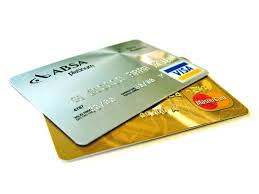
Recently, news broke about a new technology that allows Oklahoma Highway Patrol (OHP) officers to seize assets from prepaid cards during a traffic stop. The 16 new portable devices were implemented based on what Oklahoma officials say is an increase in the use of prepaid debit and gift cards among drug dealers.
The announcement brought with it renewed controversy over the right of law enforcement officials to confiscate money and property from those suspected of a crime, a practice commonly referred to as asset forfeiture. Critics argue that, like traffic and parking tickets, asset forfeiture has become a business that too many law enforcement agencies rely on to buy things like armored cars and coffeemakers.
Since 9/11, the use of asset forfeiture has skyrocketed. It’s estimated that between 2008 and 2014, police agencies across the U.S. spent $2.5 billion in seized assets.
This is still a small fraction of the income generated from traffic tickets. While exact data is hard come by, it is believed that Americans spend $6.2 billion annually on speeding tickets alone. Reports reveal that while there has been a steady decline in traffic citations in the U.S, overall revenue from traffic tickets is up, primarily as a result of fines going up in cost.
According to data from the Bureau of Justice Statistics, the vast majority of traffic stops are for speeding and 80% of drivers pulled over by police say they were pulled over for legitimate reasons. Furthermore, only 3% of all traffic stops lead to a search of the driver or the vehicle. That said, an investigation by the Washington Post found that asset forfeiture affects the way police officers fight crime. A car headed into a major metropolitan area is likely to be carrying drugs; a car driving away is probably carrying money from the deal. Cops know this and take it into account when combating crime.
Could law enforcement’s ability to seize digital assets lead to a shift in police priorities away from traffic tickets? It seems unlikely, though it’s not impossible. Asset seizures ultimately represent a tiny portion of total revenue generated by police agencies. In addition, not all asset seizures are from traffic stops – many also come from raiding homes of suspects, sting operations, and the like – and speeding tickets alone generate 14 times more revenue than total asset seizures.
For most people, assets seized by police are extremely difficult to get back even if the person was never charged with a crime. The process is often complicated, time consuming, and expensive. Conversely, it is much more cost effective for most people to fight traffic tickets. In fact, the Rosenblum Law Firm offers free consultations for any traffic stop, so call 888-434-0406 today for help with your traffic violation.
As the founding attorney of Rosenblum Law, Adam has built a firm that prioritizes client success and legal excellence. His leadership and vision have established Rosenblum Law as a premier legal practice for traffic and criminal defense, ensuring that clients receive the highest level of advocacy and support.
